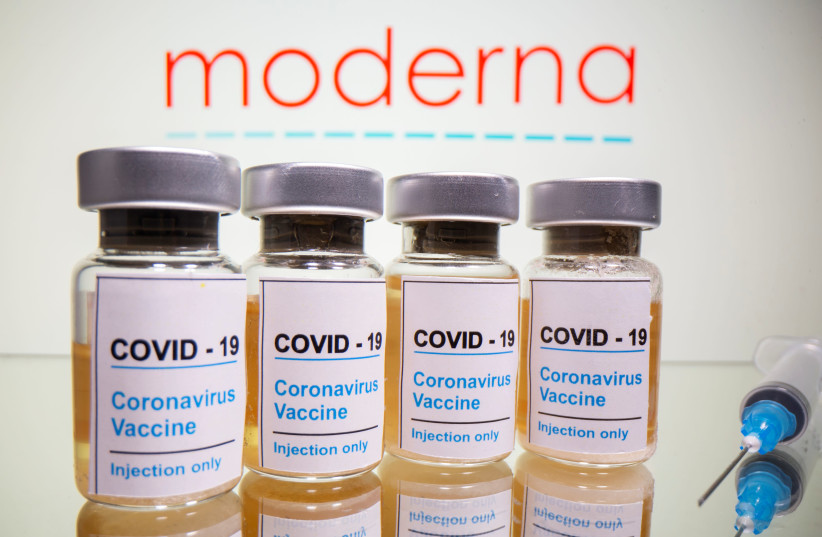US biotech firms Moderna and Merck are collaborating together on an mRNA-based cancer vaccine, based on the mRNA technology used in Moderna's COVID-19 vaccine, and are set to move into phase III trials next year.
The experimental vaccine made by Moderna is being coupled with Merck's own immunotherapy medication known as Keytruda in order to treat certain cancers.
According to data shared Tuesday by Moderna, initial trials in a small-scale study found that a combination of Moderna's vaccine and Keytruda gave improved chances of surviving stage III and stage IV of the aggressive skin cancer melanoma.
However, there were some side effects, with serious ones occurring in 14.4% of patients.
The phase III trial is set to take place in 2023, following discussions with regulatory officials.

mRNA: Transformative for COVID-19 and now for cancer
"Today's results are highly encouraging for the field of cancer treatment. mRNA has been transformative for COVID-19, and now, for the first time ever, we have demonstrated the potential for mRNA to have an impact on outcomes in a randomized clinical trial in melanoma," said Moderna CEO Stephane Bancel.
"Today's results are highly encouraging for the field of cancer treatment. mRNA has been transformative for COVID-19, and now, for the first time ever, we have demonstrated the potential for mRNA to have an impact on outcomes in a randomized clinical trial in melanoma."
Stephane Bancel
"We will begin additional studies in melanoma and other forms of cancer with the goal of bringing truly individualized cancer treatments to patients. We look forward to publishing the full data set and sharing the results at an upcoming oncology medical conference, as well as with health authorities."
"These positive findings represent an important milestone in our collaboration with Moderna," said Merck Research Laboratories president Dr. Dean Y. Li.
"Over the last six years, our teams have worked closely together combining our respective expertise in mRNA and immuno-oncology with a focus on improving outcomes for patients with cancer. We look forward to advancing this program into the next phase of development."
